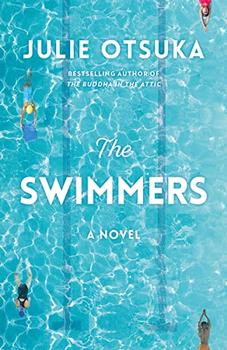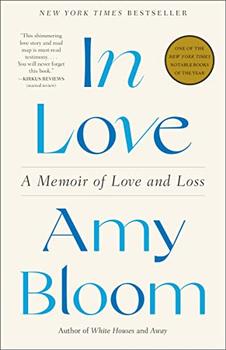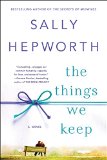Summary | Excerpt | Reviews | Beyond the book | Read-Alikes | Genres & Themes | Author Bio

A novel
by Julie OtsukaThe first part of Julie Otsuka's third novel, The Swimmers, seems on the surface to be a simple tale about several users of an underground public pool. This varied group make up a loose club of regulars who know each other superficially — by swimming style or lane choice, occupation, or by their reason for swimming in the first place. It quickly becomes clear that the pool is important to each of them — a sanctuary from the mental and physical strains they endure daily, an opportunity for an hour of peace. The anonymous narrator, who counts herself as one of the swimmers, rarely names her companions or singles any of them out, apart from Alice, "a retired lab technician now in the early stages of dementia," the only character who gets repeated mentions throughout this section. When the pool develops a crack, eventually resulting in its closure, everyone is impacted differently, and each must learn to cope in their own way.
About a third of the way through, the novel changes direction to focus on an unnamed woman in a memory care facility and her daughter, who is witnessing her mother's decline. Readers are left to assume the woman is Alice, and the daughter seems to be a stand-in for Otsuka herself, as aspects of her life align with the author's. The narration switches from the "we" of the first section to "you," and it's unclear if the narrator is addressing the daughter, or if the daughter is talking to herself:
Whenever you stop by to see her she remembers to give you a big hug, and you are always surprised at her strength. She remembers to give you a kiss every time you leave…She remembers to ask you if you would like her to iron your blouse for you before you go out on a date…She does not remember eating lunch with you twenty minutes ago and suggests that you go out to Marie Callender's for sandwiches and pie. She does not remember that she herself once used to make the most beautiful pies with perfectly fluted crusts. She does not remember how to iron your blouse for you or when she began to forget.
Later, a dispassionate narrator tells their audience about what they can expect at Belavista, a long-term, for-profit memory residence ("You are here today because you have failed the test. Maybe you were unable to draw all the numbers on the clock face, or spell 'world' backward, or remember even one of the five unrelated words that were just recited to you, mere minutes ago, by one of our professionally trained testers") before returning to the younger woman's point of view as her mother's dementia progresses.
The Swimmers isn't a conventional novel, and at first I found the author's narrative style rather off-putting. Paragraph after paragraph reads like a catalog, an inventory of the swimmers and their habits, without much exposition or depth. I was well into the book and had spent many pages wondering what the first part of it had to do with the second before realizing that it's allegorical, with the crack in the pool representing dementia. The author maintains this style throughout the novel, but hidden within seemingly random sentences is an amazing amount of detail about the person Alice was before dementia took her memory. The narrative forms a sort of collage of the woman's life, fragmented but nonetheless making a complete picture. While it lacks a traditional plot structure, we come to know Alice well.
Much of the text, too, relays the unnamed daughter's regrets as she witnesses her mother's decline ("You never once invited your mother to come visit you in all the years that you were away. You never wrote to her. You never called to wish her a happy birthday. You never took her to Paris or Venice or Rome, all the places she had dreamed of one day seeing…"). Her heartbreak over her failings and over the progression of her mother's condition isn't explicitly stated, but it's palpable regardless. Equally affecting (and actually quite frightening) is the Belavista section, as one realizes just how much autonomy a person relinquishes upon entering such a facility.
I love books that pack an emotional punch, but that do so subtly, without hitting the reader over the head with the obvious; The Swimmers is just such a novel. It's poignant without becoming cloying, and it's a book that will likely haunt its readers long after they turn the last page. I highly recommend it, particularly for those who are dealing with memory loss (their own, or that of a loved one). It would also make a wonderful book for group discussion.
![]() This review was originally published in The BookBrowse Review in March 2022, and has been updated for the
February 2023 edition.
Click here to go to this issue.
This review was originally published in The BookBrowse Review in March 2022, and has been updated for the
February 2023 edition.
Click here to go to this issue.

If you liked The Swimmers, try these:

by Amy Bloom
Published 2023
Winner of the 2022 BookBrowse Nonfiction Award
This powerful memoir by New York Times bestselling author Amy Bloom is an illuminating story of two people whose love and shared life experiences led them to find a courageous way to part - and of a woman's struggle to go forward in the face of loss.

by Sally Hepworth
Published 2017
With honesty and true understanding, Sally Hepworth pens this poignant story of one of today's nightmares: early-onset Alzheimer's.
Your guide toexceptional books
BookBrowse seeks out and recommends the best in contemporary fiction and nonfiction—books that not only engage and entertain but also deepen our understanding of ourselves and the world around us.